Sireli Matavesi: Rugby player who swapped Fiji for Cornish mine
- Published
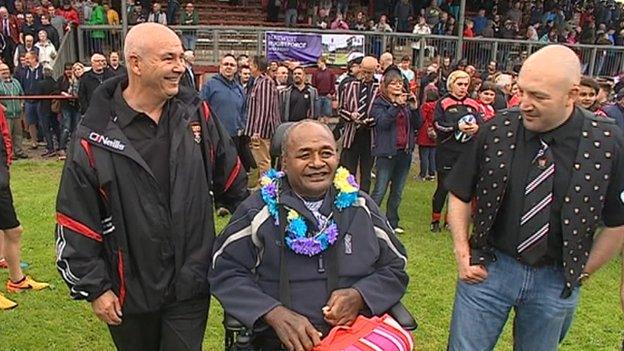
Nearly £8,000 was raised for Hayle's Marie Therese hospital from the match played in honour of Sireli Matavesi
After a chance encounter on a rugby tour 30 years ago, Fijian farmer Sireli Matavesi swapped the south Pacific sunshine for the bleak darkness of a Cornish tin mine.
He would go on to become an iconic figure in Cornish rugby, paving the way for other Pacific islanders to play rugby in the UK, and this week a capacity crowd of 3,000 turned out in his honour.
A charity rugby match to raise money for the Marie Therese hospital in Hayle, which has become the former player's home since he was left paralysed in an operation last year, was organised by his sons and featured a fly-past by a helicopter from RNAS Culdrose.
All three of Mr Matavesi's sons play rugby professionally and they called upon some of their illustrious colleagues to take part while others, like England international Jack Nowell, donated signed shirts that helped raise nearly £8,000 in an auction.
Ex-All Blacks player Jerry Collins, who died in a car crash earlier this month, had been due to play.
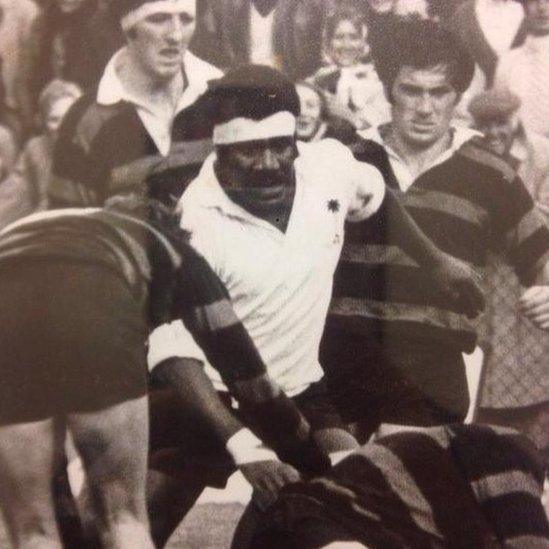
Sireli Matavesi toured the British Isles with the Fiji Barbarians in 1985
The event was the latest in a story that started with less fanfare when Matavesi senior came to the UK on a rugby tour with the Fiji Barbarians, in 1985.
He made such an impression during a match in Cornwall that Camborne rugby club paid for him to return to play for them.
As rugby union was an amateur sport in the 1980s, the club had to find him a job and the former coconut farmer, from the remote Vanua Balavu island in eastern Fiji, was taken on as a miner at South Crofty.
"The only job available was tin mining, there was a lot of banter down there and I loved it," Mr Matavesi said.
"All the rugby players worked down at the mine and everybody looked after each other, apart from at the weekend when we would play against each other and try to kill each other, that was the Cornish way of life.
"Rugby was completely different in Fiji, I couldn't even afford a pair of boots. I had to borrow my dad's which were size 14 and pack them with pieces of cloth and paper."
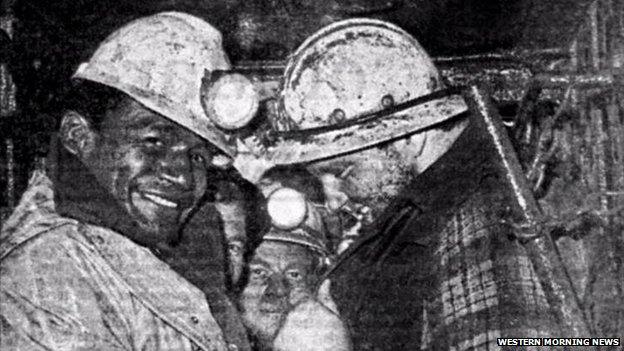
Because rugby union was an amateur game in the 1980s, players in Cornwall earned a living down the tin mines
He returned to play for the club for several seasons before making Cornwall his permanent home after meeting Camborne local Karen Lean, with whom he started a family after they married.
When she died in 2005, Mr Matavesi was left to bring up eldest son Josh, 24, who plays for Swansea's Ospreys and features in the Fijian World Cup squad.
His middle son Sam, aged 23, whose regular job is with Plymouth Albion, has also represented Fiji and his youngest son 20-year-old Joel, is up and coming at Ospreys, too.
"It's so weird watching the boys on TV. I'm in the hospital with an iPad, that they had to teach me how to use - it's not like smoke signals in Fiji," Mr Matavesi quipped.
"That was one proud moment for me, when I saw Josh run out and sing the national anthem, I didn't know if he could speak Fijian or not but I saw his lips moving!"
The 59-year-old describes his Marie Therese home as "one of the best places that ever existed," but was moved to organise the charity match when he realised its facilities were lacking.
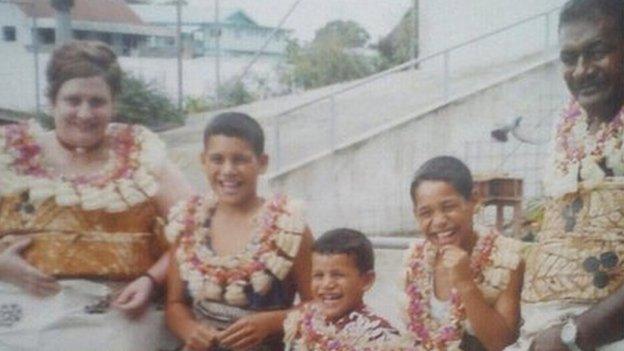
The Matavesi family grew up in Cornwall - now all three sons are involved in professional rugby
"I suddenly found my strength here, it's the way the staff treat us, we're not treated as a number," he said.
"The nurses are doing a lot of physical lifting as there are three lifts and two of them don't work.
"The gym is empty, whatever we can screw, velcro or tie together, we'll use. I'm lucky enough to see this and be looked after by these dedicated staff."
He approaches his life there with the same spirit Roger Moyle recognised in the 1980s.
Mr Moyle was one of the men who was instrumental in bringing him to Cornwall in the first place, a decision he describes as "one of the greatest things we ever did."
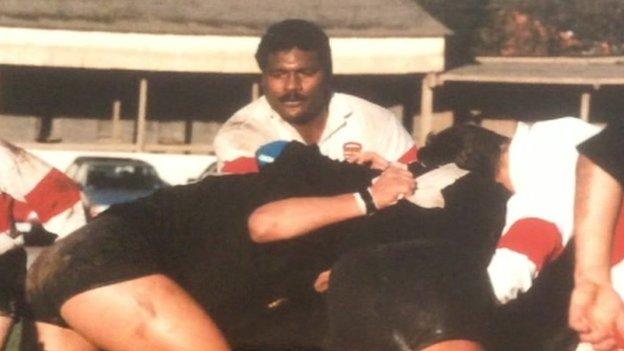
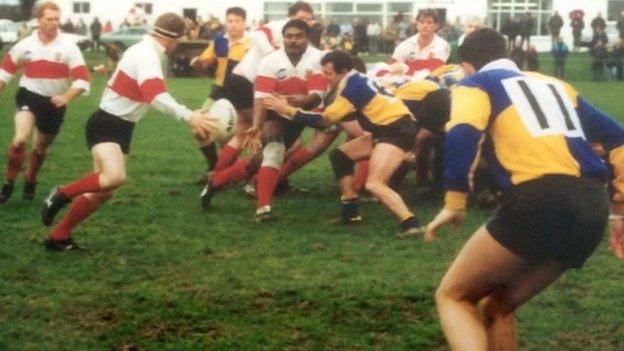
"He had a massive frame and he entered the clubhouse like a true south sea island warrior, he turned out to be an iconic player for us, loved wherever we went," he said.
Mr Matavesi joked that it did not take long for his massive frame to be enhanced by the local delicacy.
"When I came over I was about 15-16 stone and I was playing as a loose forward," he said.
"Then, after so many pasties, I had to be pushed in front to prop - I was beginning to look like a pasty."
- Attribution
- Published19 November 2013
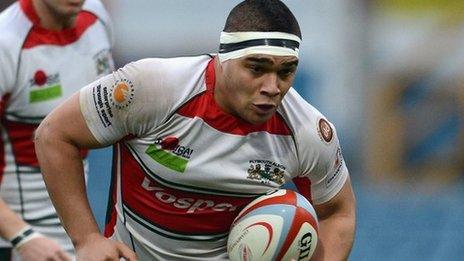
- Attribution
- Published6 June 2013
